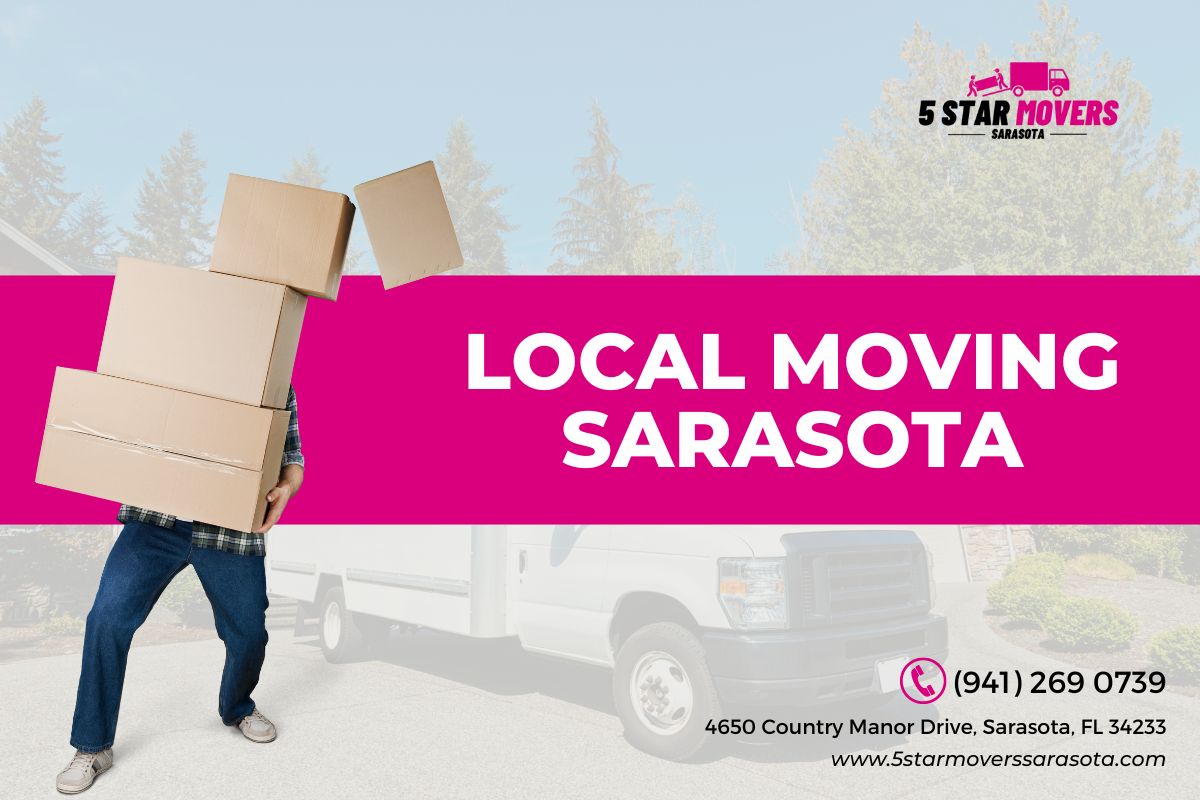

Introduction
Are you planning to move to a new home? Relocating can be an exciting adventure, but it can also be overwhelming, especially when it comes to decluttering your belongings. The process of sorting through years of accumulated items can seem daunting, but with some quick and easy strategies, you can declutter efficiently before your move. In this article, we will explore effective methods to simplify the decluttering process and make your relocation smoother.
Quick and Easy Ways to Declutter Before Relocating
Assess Your Belongings
Before you begin the decluttering process, take a moment to assess all your belongings. Start by creating a list of items that are essential and those that you no longer need or use. This initial step will help you determine the extent of decluttering required and give you a clearer picture of what needs to be done.
Set Decluttering Goals
To stay focused during the decluttering process, it is crucial to set achievable goals. Break down your tasks into smaller steps and assign specific deadlines for each task. This way, you can track your progress and maintain motivation throughout the process.
Create Categories
Sorting your belongings into categories is an effective way to streamline the decluttering process. Create categories such as "Keep," "Donate," "Sell," and "Dispose." As you go through each item, assign them to their respective category. This approach will help you make decisions more efficiently and avoid unnecessary clutter in your new home.
Start with Non-Sentimental Items
When beginning the decluttering process, it's often easier to start with non-sentimental items. These could include clothes, kitchen utensils, books, or electronics that you no longer use or need. By tackling these items first, you'll gain momentum and find it easier to make decisions about sentimental possessions later on.
Use the Three-Box Method
The three-box method is a simple yet effective way to declutter. Label three boxes as "Keep," "Donate," and "Throw Away." As you go through each item, place them in the appropriate box. This method makes it easier to visualize your progress and ensures that each item is given careful consideration.
Consider the 80/20 Rule
The 80/20 rule, also known as the Pareto Principle, can be applied to decluttering as well. According to this principle, we tend to use only 20% of our belongings regularly, while the remaining 80% goes unused. Keep this in mind as you go through your items and focus on keeping the essentials that fall within the 20% category.
Sell or Donate Unwanted Items
If you have items that are still in good condition but no longer serve a purpose for you, consider selling or donating them. Online platforms such as eBay or local buy-and-sell groups can help you sell unwanted items. Donating to charities or organizations in need is another excellent way to give back to the community while decluttering.
Recycle or Dispose of Unusable Items
For items that are broken, damaged beyond repair, or simply unusable, it's important to dispose of them responsibly. Check with your http://stephenojjf787.iamarrows.com/decluttering-101-getting-rid-of-unwanted-items-before-your-move local waste management facilities for guidelines on how to properly recycle or dispose of these items. By doing so, you'll ensure that your decluttering efforts are not causing harm to the environment.
Digitize Paperwork and Photos
Paperwork and old photographs can take up valuable space during a move. Consider digitizing important documents and photos to reduce clutter and make them easily accessible whenever needed. Scanners and smartphone apps can help you convert physical copies into digital files effortlessly.
Involve Your Family
If you're moving with your family, it's essential to involve everyone in the decluttering process. Assign tasks to each family member and make it a fun activity. By involving your loved ones, you not only share the workload but also create an opportunity for meaningful conversations and bonding.
Use Moving as an Opportunity to Upgrade
Relocating provides an excellent opportunity to upgrade your belongings. If you've been holding onto old furniture or appliances that have seen better days, consider replacing them with new ones that better suit your needs and style. This way, you can start fresh in your new home without unnecessary clutter.
Rent a Storage Unit
If you're having difficulty parting with certain items but don't have space for them in your new home, renting a storage unit can be a viable solution. Storage units provide a temporary home for items that hold sentimental value or are not currently needed. However, be mindful not to use storage as an excuse to hold onto unnecessary clutter.
Pack Room by Room
When it comes time to pack for your move, approach it room by room. Focus on one area at a time and pack systematically. Label each box with its contents and the room it belongs to, making unpacking much easier in your new home.
Dispose of Expired Items
While decluttering your kitchen or bathroom, pay attention to expired items such as food, cosmetics, or medications. These items can take up valuable space and may pose health risks if consumed past their expiration date. Dispose of them appropriately and make room for fresh supplies in your new home.
Donate Unused Clothes
Clothing often takes up a significant portion of our belongings. Take this opportunity to declutter your wardrobe by donating clothes that no longer fit or those that you haven't worn in years. There are numerous organizations that accept clothing donations and redistribute them to those in need.
Organize Your Digital Files
In addition to physical clutter, digital clutter can also be overwhelming. Take the time to organize your digital files, including documents, photos, and emails. Create folders and subfolders, delete unnecessary files, and back up important data to ensure a smooth transition to your new computer or device.
Create a Moving Supplies Checklist
To ensure a stress-free move, create a moving supplies checklist in advance. Include items such as moving boxes, packing tape, bubble wrap, markers, and labels. Having all the necessary supplies on hand will make the packing process more efficient and prevent last-minute scrambling.
Seek Professional Help
If you find yourself overwhelmed with the decluttering process or simply don't have enough time to handle it yourself, consider seeking professional help. There are moving companies that offer decluttering services alongside their moving services. These professionals can provide guidance and assistance in making tough decisions about your belongings.
Pack an Essentials Box
Before you start packing everything away, set aside an essentials box. This box should contain items that you'll need immediately upon arriving at your new home, such as toiletries, a change of clothes, snacks, important documents, and any necessary medication. Having these essentials readily accessible will help ease the transition into your new space.
Label Everything Clearly
When packing your belongings into boxes, be sure to label each box clearly. Use bold markers or colored labels to designate which room each box belongs to. This labeling system will save you time during unpacking and ensure that items are placed in their appropriate locations.
Take Measurements
Before moving day arrives, take measurements of doorways, hallways, and staircases in both your current and future homes. This step is crucial for ensuring that larger furniture pieces can be moved smoothly without any obstacles or damage. It's better to identify any potential issues beforehand rather than struggling on the day of the move.
Plan for Pets
If you have pets, it's essential to plan for their comfort during the move. Make arrangements for them to stay with a friend or family member on moving day to reduce stress and ensure their safety. Pack a separate box with their essentials, including food, toys, and bedding, so that they have everything they need in their new environment.
Declutter Your Digital Subscriptions
In the digital age, it's easy to accumulate numerous subscriptions for streaming services, magazines, or online platforms. Take this opportunity to declutter your digital subscriptions by canceling those that you no longer use or enjoy. This will not only free up space in your inbox but also save you money in the long run.
FAQs (Frequently Asked Questions)
Q: How far in advance should I start decluttering before my move? A: It's recommended to start decluttering at least a few weeks before your move to allow sufficient time for thorough sorting and decision-making.
Q: Can I hire professional movers to help with decluttering? A: Yes, many moving companies offer additional services such as decluttering assistance. Contact local movers or search online for experienced professionals in your area.
Q: What should I do with sentimental items that I can't bear to part with? A: If you have sentimental items that you can't part with but don't have space for in your new home, consider storing them safely in a memory box or photographing them to create a digital keepsake.
Q: How can I involve my children in the decluttering process? A: Make decluttering a game by challenging your children to find items they no longer use or need. Offer rewards or incentives for their participation and emphasize the importance of giving back to others through donations.
Q: Is it worth hiring professional organizers for decluttering? A: Hiring professional organizers can be beneficial if you feel overwhelmed or lack the time to declutter yourself. They can provide guidance, practical solutions, and help create a more organized and clutter-free space.
Q: What are some common mistakes to avoid during the decluttering process? A: One common mistake is holding onto items "just in case" or due to guilt. Remember that decluttering is about creating a fresh start and letting go of unnecessary clutter. Be honest with yourself about what you truly need and use.
Conclusion
Decluttering before relocating may seem like an arduous task, but by following these quick and easy strategies, you can simplify the process and make your move more efficient. Assess your belongings, set goals, and create categories to streamline the decluttering process. Involve your family, sell or donate unwanted items, and recycle or dispose of unusable ones responsibly. By decluttering before your move, you'll not only lighten your load but also create a fresh start in your new home.